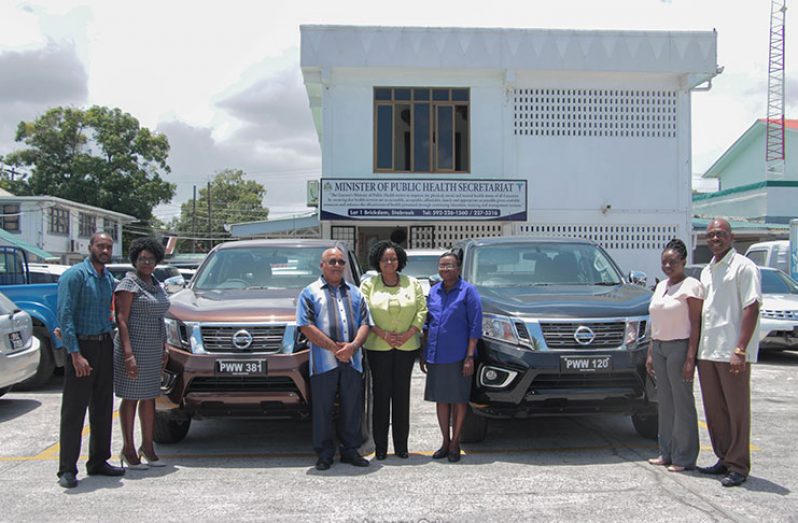TWO vehicles were on Friday handed over to the Ministry of Public Health by Global Fund, an international financing organisation, which provides grants to support Tuberculosis (TB), Malaria and HIV/AIDS initiatives.
The vehicles are to be used by the Ministry of Public Health to aid in the fight against TB in Regions Three and 10.
Last month, Global Fund gifted the Ministry three ATVs for use in Regions One, Eight and Nine for the fight against TB, HIV/AIDS and malaria.
Dr Joann Simpson, focal point person for Tuberculosis in Region Three, said TB is a major public health concern and noted that the prevalence of the contagious disease is the highest recorded in the Americas.
She said with the vehicles, health workers would be in a better position to track TB patients, who of their own volition stopped taking medication prescribed to them.
Dr Simpson said too that the two vehicles will assist the two regions Directly Observed Treatment short-course (DOTS) initiatives.
Meanwhile, World TB Day will be observed on Friday, March 24, and Dr Simpson is urging all citizens to remain alert about the air-borne disease, a statement from the Ministry of Public Health stated on Sunday.
There are two types of the disease, drug resistant and sensitive and according to the doctor, patients with the former type require two years of continuous treatment, while those with sensitive TB are to be treated for six months with a “cocktail of four medications to help reverse the disease”.
TB is caused by the bacteria Mycobacterium tuberculosis, which can attack any part of the body, but usually affects the lungs.
The disease was once a leading cause of death in the developed world, but is now more of a problem for the developing world, where some 80 per cent of cases have been found.












